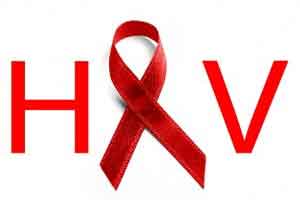- Home
- Editorial
- News
- Practice Guidelines
- Anesthesiology Guidelines
- Cancer Guidelines
- Cardiac Sciences Guidelines
- Critical Care Guidelines
- Dentistry Guidelines
- Dermatology Guidelines
- Diabetes and Endo Guidelines
- Diagnostics Guidelines
- ENT Guidelines
- Featured Practice Guidelines
- Gastroenterology Guidelines
- Geriatrics Guidelines
- Medicine Guidelines
- Nephrology Guidelines
- Neurosciences Guidelines
- Obs and Gynae Guidelines
- Ophthalmology Guidelines
- Orthopaedics Guidelines
- Paediatrics Guidelines
- Psychiatry Guidelines
- Pulmonology Guidelines
- Radiology Guidelines
- Surgery Guidelines
- Urology Guidelines
AIDS milestone: London patient becomes second man to be cured of HIV

An HIV-positive patient from London might be the second patient in the world to be cured of the AIDS virus after he received a bone marrow transplant from an HIV resistant donor, according to a case study published in the journal Nature.
The HIV infection affects close to 37 million people worldwide and is supposed to be incurable as an attempt to find a decisive medicine which could cure it and attempt to develop a vaccine has not yielded favourable results.
The case is proof of the concept that scientists will one day be able to end AIDS, the doctors said but does not mean a cure for HIV has been found.
The new case report comes more than 10 years after the first case, known as the "Berlin patient." Both patients were treated with stem cell transplants from donors who carried a rare genetic mutation, known as CCR5-delta 32, that made them resistant to HIV. The London patient has been in remission for 18 months since he stopped taking antiretroviral drugs.
The London patient, whose case will be reported in the journal Nature and presented at a medical conference in Seattle on Tuesday, has asked his medical team not to reveal his name, age, nationality or other details.

Disclaimer: This site is primarily intended for healthcare professionals. Any content/information on this website does not replace the advice of medical and/or health professionals and should not be construed as medical/diagnostic advice/endorsement or prescription. Use of this site is subject to our terms of use, privacy policy, advertisement policy. © 2020 Minerva Medical Treatment Pvt Ltd